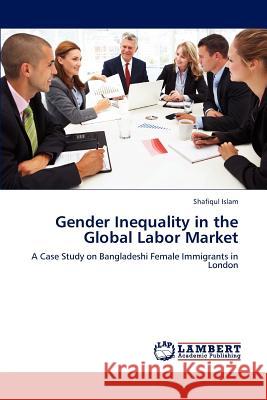Gender Inequality in the Global Labor Market » książka
Gender Inequality in the Global Labor Market
ISBN-13: 9783844398342 / Angielski / Miękka / 2012 / 96 str.
True enough that women's participation in the labor market has been accelerated conspicuously during the last few decades around the world. But do these feminizations of employment envisage the equal access and rights in the global labor market in terms of gender equality? The basic attempt of this book was to seek the answers of these queries. With an application of interdisciplinary theoretical perspectives, the book was written based on empirical findings from a field study conducted on Bangladeshi female immigrants in London, UK. It discusses the ways and to what extent Bangladeshi female immigrants' roles are sources of entitlement to the provision of UK's labor market, their status on the labor market, their limits, possibilities and ability to negotiate changes in these roles in terms of gender relations. Findings reveal that the increasing rate of feminization of employment is not coinciding with the elimination of gender disparities. Empirical evidence further fails to support the argument of neoliberal economic development, global capitalism and free market economy that women's occupational outcomes result primarily from free choices that they make in an open market.
True enough that womens participation in the labor market has been accelerated conspicuously during the last few decades around the world. But do these feminizations of employment envisage the equal access and rights in the global labor market in terms of gender equality? The basic attempt of this book was to seek the answers of these queries. With an application of interdisciplinary theoretical perspectives, the book was written based on empirical findings from a field study conducted on Bangladeshi female immigrants in London, UK. It discusses the ways and to what extent Bangladeshi female immigrants roles are sources of entitlement to the provision of UKs labor market, their status on the labor market, their limits, possibilities and ability to negotiate changes in these roles in terms of gender relations. Findings reveal that the increasing rate of feminization of employment is not coinciding with the elimination of gender disparities. Empirical evidence further fails to support the argument of neoliberal economic development, global capitalism and free market economy that womens occupational outcomes result primarily from free choices that they make in an open market.











